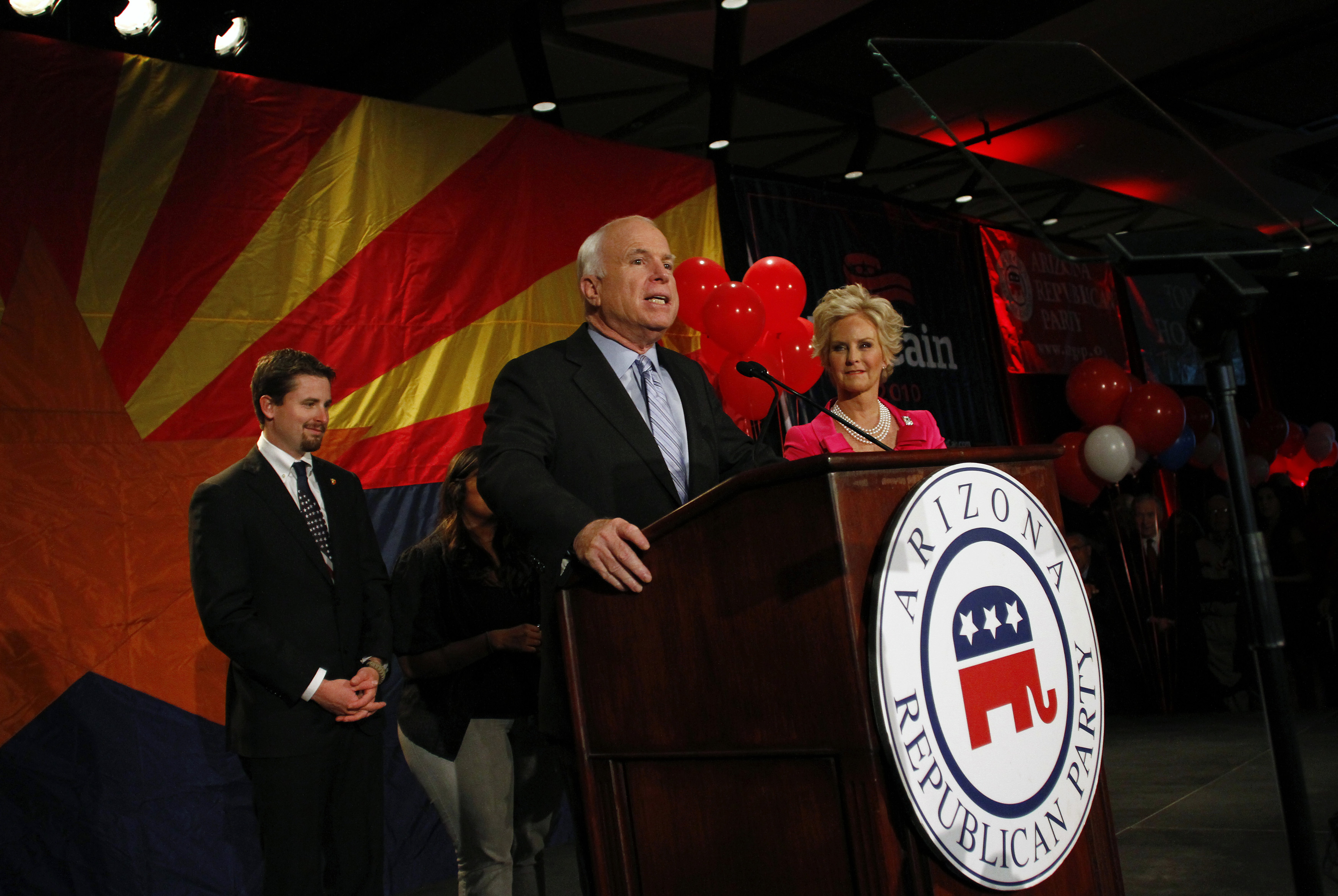
Americans in Switzerland react to US elections

Republicans and Democrats in Switzerland have had mixed reactions to the United States midterm results but were agreed that it was a backlash against the president.
As predicted, Republicans have taken control of the US House of Representatives, while Democrats have maintained a slim majority in the Senate.
Tuesday’s elections provided a topic of conversation around the world – and also among American voters living in Switzerland. Reactions varied from satisfaction to disappointment, but few were surprised by the results.
“I think in this case, there’s a lot of frustration and anger in both parties, and that was manifested by this Tea Party movement. There is deep concern about the American economy – so those things conspire to give whoever’s in charge a good solid drubbing … and that’s exactly what we saw,” Republican Jon McNerney told swissinfo.ch. The Geneva-based high technology professional has lived in Switzerland for 12 years.
Sharon Alexander, a member of the Basel branch of Democrats Abroad, speculated that some voters may have voted Republican to provoke President Barack Obama.
“The election shows that Americans want to see their president as upset as they are – I think it’s as simple as that. That’s why they could trust somebody like Bush who could do such terrible damage in his eight years in government; he was a down-home folksy guy and they could identify with him,” Alexander told swissinfo.ch.
“I have yet to see Obama publically get angry at the Republicans for blocking his policies and I think people misunderstand that and they take out their frustration on him because he’s not getting upset enough.”
Acid test
McNerney said that the election results were essentially a reflection of the president’s performance.
“That first mid-point of the first term, I think people are effectively either buying into [a president’s] campaign rhetoric or not. So it’s a real acid test to see if you’ve lived up to what you promised,” McNerney said.
“The Democrats were in charge, but they were unable, at least from a perception point of view, to take actions that had demonstrable impact for American citizens.”
Alexander predicts an even tougher time ahead for the Obama administration.
“President Obama had two years to get his policies through with two houses that were majority Democrats and he still had a hell of a time because whatever tactics were available to the Republicans, they were sufficient enough to stop the processes. So now that they’re the majority in the House this means that they’ll have an easier time blocking his policies,” said Alexander, who has lived in Switzerland on and off since 1990.
More bipartisanship
People were following the midterm elections partly for fun and partly for business reasons at the Swiss-American Chamber of Commerce in Zurich, according to director Martin Naville.
“I think everybody was rather happy to see more bipartisanship in Congress and also some satisfaction that the Tea Party didn’t have overwhelming success which would have given it too much impetus,” Naville told swissinfo.ch
He said that otherwise, it was exactly what they had expected – “except for two small surprises, which were the 60-some seats that the Republicans have won because we expected a bit less, and the fact that [Senate Majority Leader] Harry Reid made it across the finish line.”
“I think it’s a very good thing – we will need somebody seasoned like Reid for the new constellation in Congress.”
Clear message
Alexander was intrigued by the success of a party-less candidate.
“What’s been really interesting about this election is that a write-in candidate [whose name does not appear on the ballot] has won a position – something I don’t remember happening in my lifetime. I think that’s a big change, actually, if we have a possibility of third-party candidates winning elections, that’s going to change things,” she said.
Yet the consensus seems to be that things won’t change much for now – at least not in terms of America’s relationship with Switzerland and other countries.
“This election wasn’t about foreign policy or foreign economic policy – we’ve seen very little change between Bush and Obama, except for the tone, which has improved massively,” said Naville. “The issues stay the same [as well as the] president and the cabinet – and so there’s very little change that I would expect in the relationship between the US and other countries.”
“In general I think it was a clear message from the voters to the Democrats and also a clear message to the Tea Party that it is not completely invincible. So I think it’s an interesting start for the next phase of American politics,” he added.
Incomplete returns on Wednesday showed the Republican Party picked up at least 60 House seats and led for four more, far in excess of what was needed for a majority. About two dozen races remained too close to call.
The outcome was the House’s biggest party turnover in more than 70 years.
Republicans also gained at least six Senate seats – among them were Tea Party favourites Rand Paul in Kentucky, Mike Lee in Utah and Marco Rubio in Florida.
The Migration Office says there were 16,581 US citizens living in Switzerland as of the end of 2009.
This number does not include those with dual Swiss-American citizenship.
Any American 18 years and older living overseas is allowed to vote in federal elections.
Some states do not allow US citizens to cast ballots on state or local issues if they have never lived in the US.

In compliance with the JTI standards
More: SWI swissinfo.ch certified by the Journalism Trust Initiative





























You can find an overview of ongoing debates with our journalists here . Please join us!
If you want to start a conversation about a topic raised in this article or want to report factual errors, email us at english@swissinfo.ch.